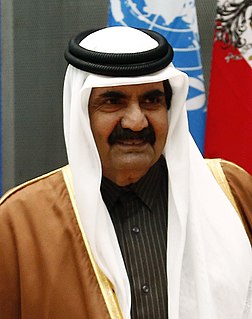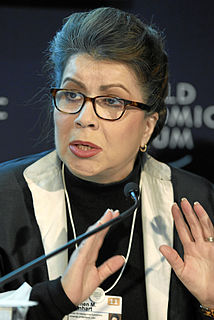A Quote by Anna Lindh
Firstly, economic globalisation has brought prosperity and development to many countries, but also financial crises to Asia, Latin America and Russia, and increasing poverty and marginalisation.
Related Quotes
What I did not know yet about hunger, but would find out over the next twenty-one years, was that brilliant theorists of economics do not find it worthwhile to spend time discussing issues of poverty and hunger. They believe that these will be resolved when general economic prosperity increases. These economists spend all their talents detailing the process of development and prosperity, but rarely reflect on the origin and development of poverty and hunger. A a result, poverty continues.
What Asia's postwar economic miracle demonstrates is that
capitalism is a path toward economic development that is potentially
available to all countries. No underdeveloped country in the
Third World is disadvantaged simply because it began the growth
process later than Europe, nor are the established industrial powers
capable of blocking the development of a latecomer, provided
that country plays by the rules of economic liberalism.
In the immediate postwar era, financial crises in advanced countries were rare events, and before 1970 did not happen at all. Since then they have occurred more often, and 2008 was the most damaging of them all to date. If we have moved back to a regime of regular financial crises - like the one we had from the 1870s to the 1930s - then our economic future will be very different from our recent past.
Latin America was the most obedient follower of the neoliberal regime that was instituted by the United States, its allies and the international financial institutions. They followed it most rigorously. Almost everyone who's followed those rules, including the Western countries, have suffered. And in Latin America they suffered severely.
A considerable proportion of the developed world's prosperity rests on paying the lowest possible prices for the poor countries' primary products and on exporting high-cost capital and finished goods to those countries. Continuation of this kind of prosperity requires continuation of the relative gap between developed and underdeveloped countries - it means keeping poor people poor. Increasingly, the impoverished masses are understanding that the prosperity of the developed countries and of the privileged minorities in their own countries is founded on their poverty.
Industrialized countries have disproportionately more cancers than countries with little or no industry (after adjusting for age and population size). One half of all the world's cancers occur in people living in industrialized countries, even though we are only one-fifth of the world's population. Closely tracking industrialization are breast cancer rates, which are highest in North America and northern Europe, intermediate in southern Europe and Latin America, and lowest in Asia and Africa.
When the US government got word that I was planning to leave Russia to go to Latin America, they brought down the plane of the - the presidential plane, which had diplomatic protection, that had the Bolivian president on board. They closed the airspace in four different countries in Europe, I believe, which was extraordinary, unprecedented.
Altermodern is an in-progress redefinition of modernity in the era of globalisation, stressing the experience of wandering in time, space and mediums. The term 'altermodern has its roots in the idea of 'other-ness (Latin alter = 'other, with English connotation of 'different) and suggests a multitude of possibilities, of alternatives to a single route. It suggests that the historical period defined by postmodernism is coming to an end, symbolised by global financial crises.
It was shameful that, after Haiti, Colombia was the second most unequal country in Latin America. But we've achieved some things; the inequality is coming down, and coming down fast. The growing economy has provided us with the funds to finance a very progressive social policy that has reduced extreme poverty. We have the lowest inflation rate of all Latin-America countries and the highest growth rate.
The essence of the this-time-is-different syndrome is...rooted in the firmly held belief that financial crises are things that happen to other people in other countries at other times; crises do not happen to us, here and now. We are doing things better, we are smarter, we have learned from past mistakes. The old rules of valuation no longer apply. Unfortunately, a highly leveraged economy can unwittingly be sitting with its back at the edge of a financial cliff for many years before chance and circumstance provoke a crisis of confidence that pushes it off.


































